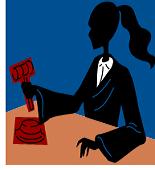Unprecedented
Fed fights subpoena on Bernanke
 Lawyers in Bank of America case want chairman to testify on talks on Merrill Lynch deal.
Lawyers in Bank of America case want chairman to testify on talks on Merrill Lynch deal.
The Federal Reserve is fighting a subpoena from lawyers in a civil lawsuit who want the central bank's chairman, Ben Bernanke, to testify about conversations he had with Bank of America Corp. executives before the lender completed its purchase of Merrill Lynch & Co.
The three-year-old class-action suit alleges that the Charlotte, N.C., bank and Kenneth D. Lewis, then its chief executive, misled shareholders about ballooning losses at Merrill before the $19.4 billion acquisition was approved. The government provided $20 billion in U.S. aid after Bank of America officials told Mr. Bernanke and then-Treasury Secretary Henry Paulson in December 2008 that they might abandon the deal because of the losses.
Lawyers for the six plaintiffs, which include the State Teachers Retirement System of Ohio and the Teacher Retirement System of Texas, want to question Mr. Bernanke about conversations he had with Mr. Lewis before the Merrill purchase closed in January 2009, said a person close to the case. The lawyers from several firms, including Bernstein Litowitz Berger & Grossmann LLP, disclosed the subpoena to Mr. Bernanke in a document filed with the Southern District of New York.
It would be highly unusual for an acting top regulator to be compelled to testify in a private lawsuit. The Fed has argued that the regulator's behavior isn't central to the case and that the Fed itself isn't a party in the case, said people familiar with situation.
J. Virgil Mattingly Jr., a Sullivan & Cromwell attorney who served as the Fed's general counsel from 1989 to 2004, said he couldn't think of any previous instances in which a top regulator was deposed in a private case. Though there were a few rare cases during his time at the Fed in which officials were asked, Mr. Mattingly said "it would be unprecedented" if Mr. Bernanke were actually deposed.
One big point of contention in the months after the deal closed was whether Mr. Bernanke threatened to oust Mr. Lewis if the chief executive didn't go through with the Merrill purchase.
Mr. Lewis is scheduled to be deposed in the same case this month. Current Bank of America Chief Executive Brian Moynihan, who was the bank's general counsel in the days before the Merrill deal closed, testified last Friday in a private session with lawyers. The bank and Mr. Lewis have denied the allegations made by shareholders in this case.
Mr. Bernanke has previously testified before Congress that he didn't issue any threats.
"Did you personally tell Mr. Lewis that you would fire him or remove the Bank of America board?" asked Rep. Edolphus Towns (D., N.Y.) during a June 25, 2009, hearing before the House Committee on Oversight and Government Reform.
"I did not," Mr. Bernanke said.
When senior Fed officials have been asked to testify in past civil cases, the central bank has generally found lower-level officials to provide the information being sought—an approach the Fed is trying to take in this case.
Two former Fed officials were deposed: Federal Reserve Bank of Richmond official Mac Alfriend and former Fed governor Kevin Warsh. Mr. Alfriend is now retired and Mr. Warsh left the Fed board last year. Both were involved in the late 2008 discussions with Bank of America about an additional round of U.S. aid.
Mr. Alfriend said he was deposed in early February and didn't believe the Fed was central to the case. "I couldn't tell them anything they didn't know," he said. Mr. Warsh couldn't be reached for comment.
The courts have generally set a high bar for compelling top regulators to testify in such cases. The bar for a Fed chairman to testify could be if only he has information needed in the case and that information is material to the outcome.
The dispute about Mr. Bernanke's testimony could be decided by a judge if the two sides can't agree.
Last December, U.S. District Court Judge Kevin Castel instructed the plaintiffs as well as the Fed to justify why the chairman should or shouldn't sit for questioning.
"Counsel for the witness should address why the testimony is not material and relevant given the witness's central role in events," the judge wrote.
The two sides met on Dec. 14 in Washington, D.C., according to court documents, and "reached a compromise." that "obviates the need for court intervention at this time," the plaintiffs' lawyers wrote in a Dec. 21 letter.
But three months later, the question is unresolved, said one person close to the matter.
(Published by WSJ - March 12, 2012)